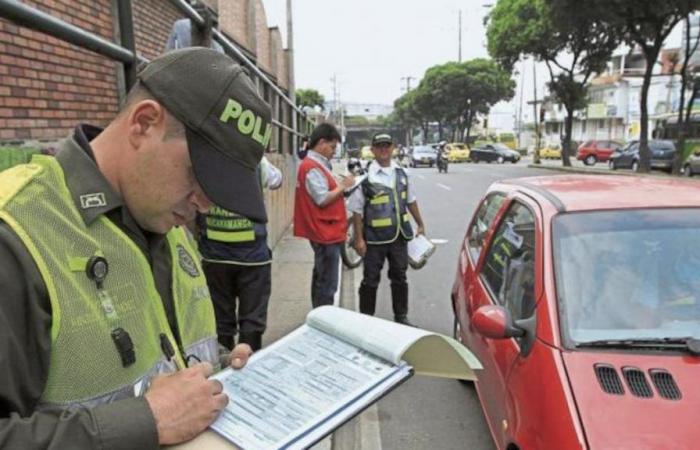Traffic departments have a period of three years to begin the coercive collection of fines. If they do not do so, you can request the prescription of the fine. Reference image.
Photo: Portfolio
Do traffic fines in Colombia have an “expiration date”? The short answer is yes, and it is a process that is legally known as prescription. Colombian law establishes in which cases a ticketed driver can request the aforementioned prescription from the traffic authority.
First of all, the National Land Traffic Code, in its Article 159, establishes that the sanctions imposed for violations of traffic regulations will expire within a period of three (3) years from the date of the occurrence of the event. However, certain events must occur before a fine -effectively- expires.
You may be interested in: Usury rate for July continued to decline consecutively
The statute of limitations occurs when the traffic authority (of the city where you were fined) does not notify the alleged offender of the payment order. If you did not receive a letter at your home, an email or a call informing you that you must pay a fine, the statute of limitations is on its way. But victory is still far from over.
ABC of the prescription of fines
To better understand when the statute of limitations applies and when it does not, it is necessary to review the due process behind collecting a fine.
Once the event that caused the imposition of a summons has occurred (remember that a summons is a summons before the traffic authority, not necessarily a fine), the driver is obliged to appear at the traffic offices within a period of five business days. following.
At this hearing, the citizen may or may not accept responsibility for the act that gave rise to the summons. If he or she does not agree with the application of the fine, the authority must summon him or her to a public hearing where the accused will be sanctioned or absolved.
You may be interested in: The future of AI: Towards truly intelligent artificial intelligences
If the hearing ends with a ruling against the driver, the authorities are obliged to notify the offender (within 10 days) of the payment order. In other words, the authorities must inform the citizen that he must pay for his violation. This will determine whether the fine expires or not.
Based on the above, the Transit Secretariats have a period of three years to initiate the coercive collection of sanctions. If they do not do so, you can request that the fine be prescribed.
Request the prescription of the fine
Article 159 of the National Land Traffic Code indicates that the statute of limitations must be “declared ex officio.” Therefore, it is best to file a petition for compensation. Petition for compensation, as stated in the Colombian Constitution, allows an individual to make a request to public institutions. The intervention of a lawyer is not necessary to file a petition for compensation, and there is no cost to prepare or receive it.
Lawyers recommend requesting the statute of limitations by mentioning what is indicated by Article 159 of the National Traffic Code and requesting that the statute of limitations of the imposed sanction be declared ex officio, listing the summons order, the date of this and the place where the events occurred.
You may be interested in: In the last decade, extortion has grown by 100% in Colombia: Trade Council
Colombian law states that authorities must resolve within 30 business days (following receipt of the document) the rights of petition that request a consultation on matters under their responsibility.


